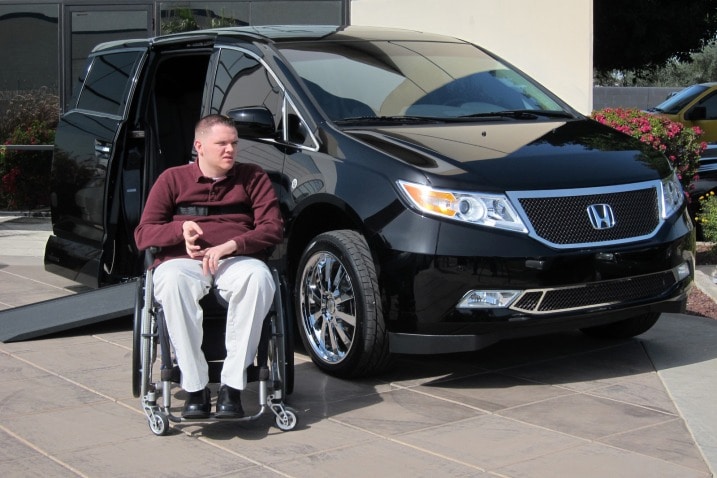3. Are you shopping for both current and future needs?
Many mobility-challenged drivers suffer from conditions — such as multiple sclerosis, cerebral palsy, etc. — that can result in diminishing strength and agility as the years go by. If you're one of these drivers, it's important to keep this in mind as you shop for a vehicle. Today, you may have the mobility to easily transfer to a sedan, but that may not be the case two or three years from now.
"We encourage our customers to consider both their present circumstance and future condition, as well," says Gutwein. "This is an investment in a vehicle, so be honest with what is needed not just now, but two, five, 10 years down the road. Will you have the same strength and energy level? If you travel with a caretaker, will they still have the ability to help you transfer and stow your wheelchair or scooter? These are the critical questions to ask when making this decision."
Also, keep in mind that while your disability may not be one that naturally worsens with time, it may be exacerbated over the years by the daily ritual of transferring from wheelchair to vehicle. "When you think about someone in a wheelchair transferring in and out of their chair multiple times a day to get in and out of a vehicle, it is taxing on the body," says Eaton. "With a wheelchair-accessible minivan, they can remain in their chair without having to transfer."
Gutwein offers a similar perspective. "It's important to recognize that, over time, the wear-and-tear of months, years, maybe decades of transfers can result in very serious injury to the shoulders. That's why we regularly hear customers say they wish they'd made the switch to an accessible van years ago. The only energy expended is to press a button, wait for the ramp to lower and then roll up and into your position. It's just that easy."
4. What's the weather like?
It's important to consider how well-suited your potential new conversion vehicle is for use in your particular climate. Conversion vans have a key advantage over other vehicle types for those who regularly face rough weather, since they don't require the driver to get out of or stow the wheelchair.
"Think about severe heat, or blistering cold," says Eaton. "What about rain or snow?" With sedans, coupes and SUVs, "you are exposed to the elements that much longer when you have to get out of your wheelchair to transfer and then get your chair stowed."
